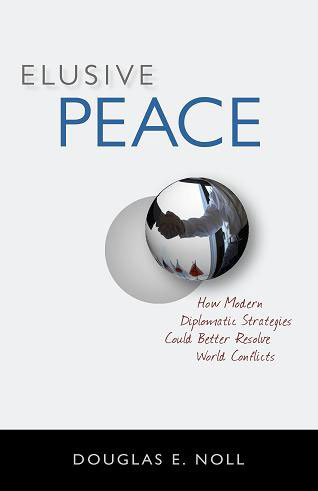Excerpt from Chapter 5 - Biases
Assume you are mediating between Pakistan and India in a quiet, behind-the-scenes peace process. How might you help Pakistan overcome its perennial poor decision-making caused by its cognitive biases? How do you get people to see things differently when they already think they are right, are smarter, holier, more righteous, and aligned with God against India?
Sometimes mediators have to reality-check the parties. Reality-checking is the subtle tight rope of asking people to examine their assumptions about the conflict without challenging their self-esteem. If the mediator is too timid, the reality is not sufficiently checked. If the mediator is too aggressive, people will feel threatened. Sometimes, a mediator may help people question their assumptions, only to face deeper intransigence as the new logic chain leads to an unhappy result. As we saw in the previous chapters, trying to change beliefs with logic is difficult at best, making reality-checking difficult when people are not open to considering alternative perspectives. In addition, reality-checking only works if the mediator is seen as a trusted friend. No one likes their position to be challenged, so it helps if the questions are coming from someone who is respected and who has no dog in the fight.
One of the phrases we use when training mediators is “you have to earn your turn.” This means that mediators have to invest in personal relationships and build up a savings account of trust. During the peace process there will always be difficult phases when you will draw down that trust account. There is no overdraft protection in mediation, and a bounced check in mediation is usually disastrous because it means the mediator’s trust and credibility is gone.
Deposits to the trust account are made from listening to stories, creating empathic connections, building friendships, sharing food, problem-solving on smaller issues, and just spending time together. The mediator's job is to understand, not to be understood.
When cognitive biases seem as embedded as they appear to be in the Pakistani leadership, a mediator may take months or even years to create a trusted relationship. This is not the time frame under which diplomats or their governments think, which is one reason why the practice of mediation should be left to highly skilled professionals. Common sense tells us that Ambassador Do-Good cannot blow into Islamabad, conduct a series of high-end meetings over the course of a few weeks, and expect to influence any change in fundamental decision-making. Considering the fragmentation of Pakistani civil society, relationships will have to be built with the military, the intelligence service, the government, and members of the civil society. In fact, a mediator assigned to the India-Pakistan dispute may spend more time building consensus and peace within Pakistan than mediating between Pakistan and India.
In Pakistan, power is uneasily shared between the military, the civilians, and the intelligence service. These groups share common biases. They believe in the superiority of Islam. They believe that Pakistan is foreordained to be a pure Islamic state in South Asia. They believe that Kashmir rightfully belongs to Pakistan. They believe that India is a corrupt bed of mongrels.
Ideally, the world would like to see Pakistan and India co-exist in peace. If Pakistani leaders were not enmeshed in the belief of their moral superiority over India, they might be more pragmatic about peace. How might you go about reality-testing the Pakistani leaders? Here’s an example of how it might be started:

